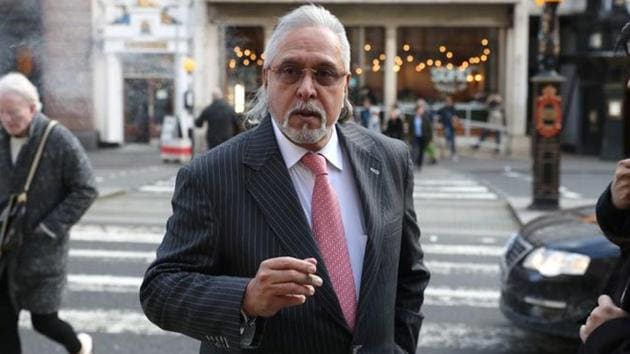India accuses Mallya of ‘absolute lies’ as lawyers spar in UK court
CPS lawyer Mark Summers, who is representing Indian government in the case Vijay Mallya case, noted that in extradition cases, British courts are solely required to establish whether the person requested has a prima facie case to answer, not to establish the truth and arrive at a conviction.
Lawyers for India and controversial businessman Vijay Mallya sparred in the high court of England and Wales on Thursday, with the former accusing his defunct Kingfisher Airlines of “absolute and outrageous lies” while seeking bank loans, and the latter alleging “a series of errors” in India’s case.

The third and last day of Mallya’s appeal against his extradition saw high-voltage exchanges between the Crown Prosecution Service lawyer appearing for India, Mark Summers, and Claire Montgomery for Mallya. The appeal is against the Westminster Magistrates Court’s December 18 judgement clearing his extradition to India to face charges of financial offences worth around 9000 crores.
Mallya, who has been on bail since his arrest in 2017, was present in court. Officials from CBI and ED were also present, besides those from the Indian high commission. The judgement by Judge Irwin and Justice Elisabeth Laing is expected later this month.
According to Summers, Mallya and Kingfisher Airlines submitted “absolute and outrageous lies” about projections of profitability and loss while applying to IDBI and SBI for loans in 2009, a proposition that was later disputed by Montgomery.
Summers quoted from emails, witness statements, brand valuations, business case projections and thousands of other documents to reiterate to the judges the government of India’s primary charges of conspiracy and substantive fraud against Mallya.
He insisted that chief judge Emma Arbuthnot of the Westminster Magistrates Court was correct in her ruling that there is a prima facie case against Mallya, for which he needs to be extradited to India to face trial.
“Profitability of the company was knowingly fudged (in loan applications), wildly untrue and patently dishonest claims were made on projections of the company’s profits and loss. Promises of equity to be infused were liberally made that never came. A honest person would have presented accurate picture to banks”, Summers said.
India’s case rests on what has been mentioned as “three chapters of dishonesty” by Mallya—misrepresentations to various banks to acquire loans, the misuse of the loans and his conduct after the banks recalled the loans.
Summers cited in this regard issues related to the Kingfisher villa in Goa, the claimed Rs 3000 crore brand value of Kingfisher when a consultancy that had valued it at half that figure was not submitted to banks, an aircraft bought allegedly for Mallya’s personal use, and the “siphoning off” of funds to trusts reportedly controlled by his children.
“There is at least a case to answer”, he told the judges, insisting that a reasonable jury at trial could conclude that Mallya and his company indulged in conspiracy, fraud, and used loans for unintended purposes, including part of the loans going to his motor racing team.
Summers noted that in extradition cases, British courts are solely required to establish whether the person requested has a prima facie case to answer, not to establish the truth and arrive at a conviction.
Montgomery, on the other hand, has insisted that Mallya’s inability to repay bank loans was due to a genuine business failure and the result of wider challenges facing the aviation industry at the time.
Outside the court, Mallya reiterated his intention to return “100 per cent” the principal amount taken as loan from the banks. According to him, the ED and the consortium of banks are vying among themselves for the same assets, which are frozen under several cases.
Unlike other instances in which banks have taken a “haircut” (less than the amount loaned) to settle, he said he was willing to repay the full amount.






